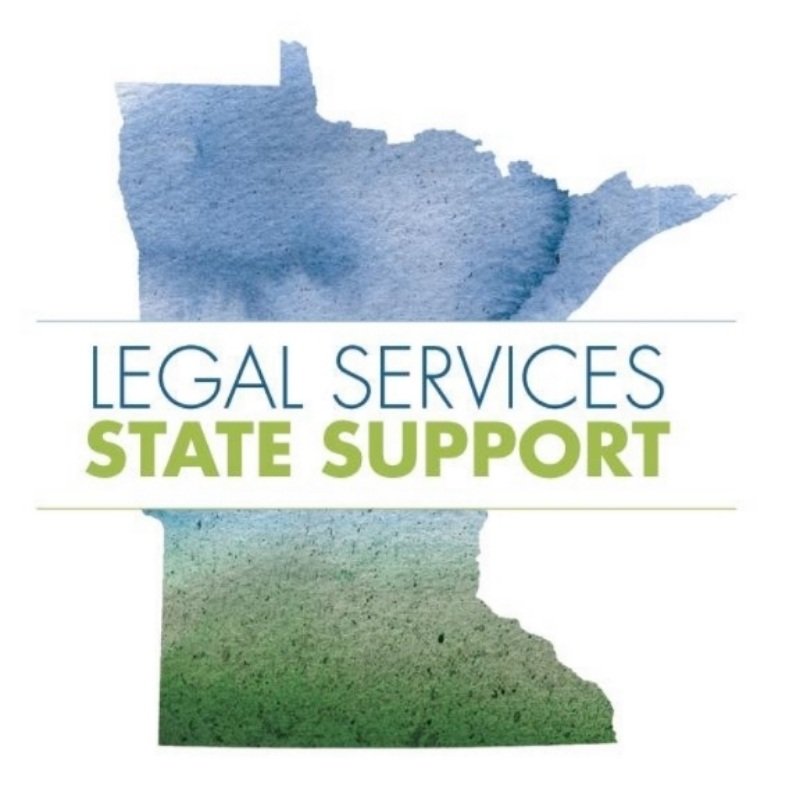Today, the Minnesota State Bar Association’s (MSBA) Access to Justice Committee released a comprehensive report on debt collection in Minnesota. Debt collection lawsuits – when a debt collector sues an individual for money owed – are the most common case types within Minnesota’s civil court dockets. Current policies can be confusing and difficult to navigate for individuals without legal counsel. And because individuals struggle to participate in their cases, debt collection lawsuits often result in an automatic win for the plaintiff – also known as default judgment. A staggering 82% of debt lawsuits filed in district courts end in default judgment, which leads to a court-authorized garnishment of a person’s wages and bank account. Communities of color disproportionately encounter debt collection lawsuits in Minnesota.
To better understand the impact of Minnesota debt collection lawsuits, the MSBA’s Access to Justice Committee (ATJ) examined bulk civil court data, analyzed policies, and conducted interviews in the state. The ATJ Committee was supported by Legal Services State Support, the Minnesota State Bar Association (MSBA), the Minnesota Judicial Branch, January Advisors Data Science Consulting, and The Pew Charitable Trusts.
“Minnesota Consumer Debt Litigation: A Statewide Access to Justice Report” is the first of its kind to delve into the issue of debt collection lawsuits and present a data-informed roadmap for civil courts to be more open, efficient, and effective. In a press conference this morning, Attorney General Keith Ellison highlighted the report’s most striking findings and his commitment to the continued conversation about addressing and supporting its recommendations. Erika Rickard of The Pew Charitable Trusts shared a national perspective on debt collection cases and court practices and how Minnesota can help lead a growing awareness of these cases' impact on consumers.
Some of the Report’s key findings include:
The majority of Minnesota civil cases are debt cases.
The overwhelming majority of debt cases in Minnesota end in default judgment in favor of the plaintiff.
Minnesota has fewer residents in debt than in most places in the U.S., but more litigious plaintiffs, with 1 in 8 debts in collections eventually filed as civil court cases.
More than half of debt cases filed in district court involved less than $4,000, which means they are eligible to be filed in conciliation court.
Overall, the rate of debt claims filed against Black and Latino Minnesotans is more than twice that of Non-Hispanic White Minnesotans
Most Minnesotans facing debt litigation represent themselves. They often don’t make enough money to hire a private attorney but make too much to qualify for legal aid.
The Report’s 4 recommendations are:
Develop specialized procedural rules for debt cases to better manage consumer debt cases.
Create and improve resources that enable self-represented litigants to participate in their cases.
Preserve economic stability so Minnesotans can afford basic needs while repaying their debts.
Expand services for lower- and moderate-income people who are struggling with debt.
“This report's findings and recommendations provide a data-driven path forward for Minnesota to become a leader in making debt collection litigation a more accessible and effective process for both consumers and creditors. I look forward to continuing to work with the great group of stakeholders who have put so much time and energy into shining a light on consumer debt cases and crafting thoughtful strategies," said J. Singleton, program manager of Legal Services State Support and member of the Consumer Debt Litigation Project Leadership Team.
Read more about this groundbreaking report and Minnesota’s medical debt landscape in “The dilemma of medical debt lawsuits in Minnesota: Too big to pay, too small to fight” in today’s Star Tribune.

